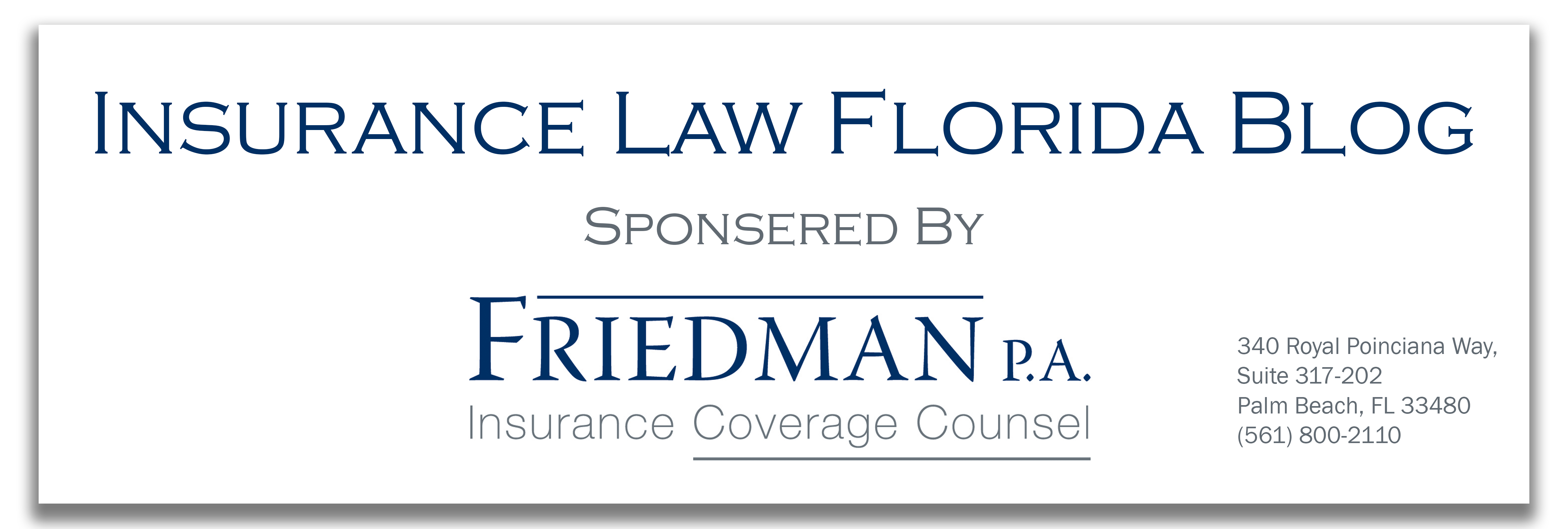The recent appellate decision from Florida’s Fourth District Court of Appeal in GEICO General Insurance Company v. Harvey, No. 4D12-1525 (Fla. 4th DCA Jan. 23, 2013) demonstrates the limitations of Florida’s non-joinder statute, Fla. Stat. 627.4136, when it comes to asserting direct action bad faith claims. Harvey arose out of a horrific automobile accident in which the driver of a motorcycle was killed. Harvey, the defendant driver, had $100,000 in policy limits from his insurer, GEICO. GEICO failed to settle the case within its policy limits. The plaintiff, the estate of the deceased motorcycle driver, took the case to trial and obtained an $8 million verdict against Harvey. The estate then added GEICO as a defendant to the personal injury action pursuant to Fla. Stat. § 627.4136(1), which provides:
It shall be a condition precedent to the accrual or maintenance of a cause of action against a liability insurer by a person not an insured under the terms of the liability insurance contract that such person shall first obtain a settlement or verdict against a person who is an insured under the terms of such policy for a cause of action which is covered by such policy.
Fla. Stat. § 627.4136 prohibits a plaintiff from joining the defendant’s insurer to the underlying tort action for purposes of asserting a direct action against the insurer. The rationale of this non-joinder rule is to avoid prejudicing the jury with the presence of the defendant’s insurer. The non-joinder limitation is lifted once a plaintiff obtains a verdict, to allow the plaintiff to add the insurer to the judgment for collection purposes, and to avoid the need for the plaintiff to file another action.
Specifically, Fla. Stat. § 627.4136(4) provides:
At the time a judgment is entered or a settlement is reached during the pendency of litigation, a liability insurer may be joined as a party defendant for the purposes of entering final judgment or enforcing the settlement by the motion of any party, unless the insurer denied coverage under the provisions of s. 627.426(2) or defended under a reservation of rights pursuant to s. 627.426(2).
In Harvey, after the plaintiff estate properly brought the insurer into the case for purposes of entry of judgment, the defendant policyholder asserted a cross-claim against the insurer for bad faith failure to settle the claim within policy limits under Fla. Stat. § 624.155. The problem with the cross-claim was that it ran afoul of Florida’s rule regarding bifurcation of bad faith insurance claims. In Blanchard v. State Farm Mut. Auto. Ins. Co., 575 So.2d 1289 (Fla. 1991), the Florida Supreme Court held that a policyholder cannot pursue a Fla. Stat. § 624.155 bad faith claim against its insurer unless and until it successfully establishes that coverage exists under the policy. This bifurcation rule, which departs from the law in most jurisdictions, results in an abatement or dismissal of the bad faith case until the conclusion of the breach of contract or declaratory judgment action. Most jurisdictions allow the bad faith claim to proceed with the main coverage action because the claims are closely related, and, although the bad faith claim necessarily flows from success in the main coverage action, judicial economy is served by trying the claims together, much like liability and damages are typically tried together in a tort claim.
The end result of the Fourth District’s decision in Harvey is more of the same duplicative litigation. The coverage action against GEICO will proceed – likely by the plaintiff estate after entering into a Coblentz agreement with the defendant – and the bad faith claim will inevitably follow the determination of coverage. Given that the coverage dispute is all about the insurer’s extracontractual liability (i.e., whether GEICO must pay the plaintiff $100,000 or $8 million), this unnecessary additional litigation epitomizes the waste of judicial resources inherent in the current system.
For the insurance industry, which has lobbied hard to keep bad faith claims bifurcated from breach of contract coverage actions, this is all about delaying payment. The biggest loser here is the estate of the deceased motorcyclist. Also losers are the taxpayers, who have to pay for two more litigations for no practical purpose other than to allow GEICO to drag out the claims payment for as long as possible.
